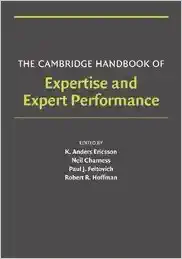Commandment Four Published as a Blog on January 16, 2015
These disquisitions are revisions something I wrote at least several years ago. First editions of these essays were begun some time ago. Somehow their print got locked in, to some degree, so some parts of the essays were thrown out of kilter and can’t be made right today. This is particularly true along the left margins of some of the essays.
Some of the Blogs will contain supplementary additions. Those added after January 1, 2015 will probably be dated, barring oversight. Readers may note that many of the cites are Texas cases. This resulted from the history of the contents of these blogs.
Given the purposes and context in which the early versions of the essays were written, many of the legal rules explicitly numbered are from The Texas Rules that were built upon the ABA Model Rules.
This blog, like some of the others, will contain supplementary additions. Like the others, it will also use some abbreviations from time to time: L for lawyer, LF for law firm, C for client.
SIX: SERVE SILENTLY (SORT OF)!
word of this commandment is important.
Lawyers are supposed to serve.
Lawyers are servants. Clients are
masters. Moreover, it is the obligation
of every lawyer to keep his clients’ secrets secret. Lawyers, therefore, must keep mostly
silent. Indeed, it the
responsibility of every lawyer to keep his client’s quasi-secrets completely
secret. At the same time, it is
sometimes the responsibility of the lawyer to confront a client who wants her
to do something and to tell the client (a) that the lawyer won’t help the
client and (b) that the client must stop doing what he wants to do. Moreover, there are some exceptions to the
rule that lawyers should serve in silence.
Rules:
methods.
should seek some sort of legal guardianship.
sure that they have enough information to make reasonable decisions.
clients confidential.
noting a trial setting is not governed by the attorney-client privilege. Solomon v. Texas, 999 S.W.2d 35 (Tex.
App.–Houston [14th Dist.] 1999, no pet.).
See Austin v. Texas, 934 S.W.2d 672 (Tex. Crim. App. 1996).)
representations in ways that would hurt their client’s interests.
Senior lawyers must supervise junior
lawyers in accordance with the rules of professional responsibility. The same goes for paralegals and other staff.
of the lawyer as a butler. This is mistake. Butlers may advise clients in many sorts of ways. However, they are almost never thought of as engaging in “deliberation” with their clients. This, and Socratic Dialogue, are “above” the rank of Butlers, and yet some philosophers of law and lawyering conceive as excellent lawyers as doing exactly that. See Anthony T. Kronmen, THE LOST LAWYER: FAILING IDEALS OF THE LEGAL PROFESSION (1993),the subject of a mostly critical symposium in 2014 JOURNAL OF HE PROFESSIONAL LAWYER.
that the lawyer is a servant, at least in substantive areas; someone
else is the master. (This is true
both for lawyers who are part of a general counsel operation and for lawyers
who are of-house counsel.)
religiously. This an
Iron Clad, Exceptionless
Rule: Report! Report!
Report! Question: What if the client tells you not to
report. Answer #1: Get it in writing. Answer #2: Fire the client. Question: What’s missing here? Beginning: Ask why not? Then listen carefully, skeptically, and intense doubts.
directions.
their masters so that they can make reasonable decisions.
settle cases without their clients’ consent. This constraint applies even when
the settlement would appear to be objectively preferable to the status quo.
settle on behalf of their clients, even though they don’t have actual
authority.
practical terms), even though they are legally independent contractors. State Farm Mut. Auto. Ins. Co. v. Traver,
980 S.W.2d 625 (Tex. 1998). This latter
idea doesn’t make complete sense to us, since clients have the right to control
a fair fraction of the substance what lawyers do. They do not have the right to control the
details of the work. This is
particularly true as to low-level procedure and routine tactics.
dream up a hare-brained scheme that involves making public disclosures of
client’s secrets, and then carry out the plan without obtaining client
consent. In re Ingersoll, 710
N.E.2d 390 (Ill. 1999) (disclosure of
confession in criminal case to public media).
This lawyer was disbarred. He was
guilty of other serious infractions as well, but the disclosure was the most
serious.
defamatory, and ignores the client’s requested corrections in the release, then
the client has neither ratified nor authorized the release, and is not
vicariously liable for the defamation. Computeraid,
Inc. v. Hewlett-Packard Co., 56 F.Supp.2d 526 (E.D. Pa. 1999).
are fiduciaries of their clients. Since
lawyers are fiduciaries, they must keep confidential information secret. Surely, discretion and the silence it implies
are characteristics of the good butler and hence characteristics of the good
lawyer.
a fiduciary generally with respect to the fiduciary estate may disclose to a
court or to the beneficiaries acts or omissions by the fiduciary that might
constitute any breach of fiduciary duty.
Jurisdictions that do not require or permit such disclosures, a lawyer
engaged by a fiduciary may condition
representation on the fiduciaries agreement that the creation of a
lawyer-client relationship between them will not preclude the lawyer from
disclosing to the beneficiaries of the fiduciary estate or to an appropriate
court, any actions of the fiduciary that might constitute a breach of fiduciary
duty,. ACTEC-15.
Texas?
disclosure be enforceable in Texas?
of professional responsibility in Texas?
disclosures to third persons about internal legal issues will likely not be
heard to suggest that her dismissal was an actionable retaliation under various
civil rights statutes. Douglas v.
Dyne McDermott Petroleum Operations Co., 144 F.3d 364 (5th Cir. 1998). This case contains a significant discussion
of the importance of in-house counsel. Id.
at 375.
Clients. The attorney-client
privilege does not apply among co-clients on the same matter. FDIC v. Ogden Corp., 202 F.3d 454 (4th
Cir. 2000). Neither do the rules require
confidentiality amongst co-clients.
duty to keep their client’s secrets when the client attacks the lawyer by way
of a malpractice case or something of the sort.
The lawyer’s duty of confidentiality is not extinguished, however, for the
lawyer is permitted to divulge only that amount of confidential information
that is necessary for his defense. Grieg v.
Macy’s Northeast, Inc., 1 F. Supp.2d 397 (D.N.J. 1998). Lawyers are not per se permitted to disclose
everything they know in a legal controversy with their clients, for example, a
suit to collect fees. Judwin
Properties, Inc. v. Griggs & Harrison, 981 S.W.2d 868
(Tex. Civ. App.–Houston [1st Dist.] 1998), pet. denied, but with some language disapproved,
43 Tex.
S. Ct. J. 289 (January 8, 2000).
with his client, the lawyer may disclose confidential matters regarding his
client to his lawyer. (Jacobs v.
Schiffer, 47 F. Supp.2d 16 (D.C.C. 1999).
(“The personal attorney becomes, in practical effect, simply a learned
alter ego of the government lawyer and equally duty-bound to treat the
confidences and secrets of the government lawyers’ client [i.e., the
government] as his own.” Id. at
21.
is both absolutely necessary for legal representation and that it is there to
protect the client. Recently, some legal
scholars have questioned this and have suggested that the principal reason for
confidentiality rules is to drive up the price of legal fees. Daniel R. Fischel, Lawyers and
Confidentiality, 65 U. Chi. L. Rev.
(1998). Can this be right? See Jonathan R. Macey and Geoffrey P. Miller,
An Economic Analysis of Conflict of Interest Regulation, 82 Iowa L. Rev. 81 (1997). (See also C6 below.)





Recent Comments